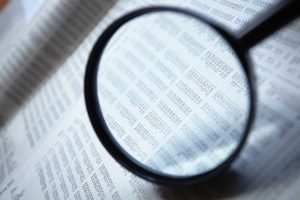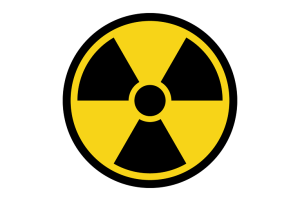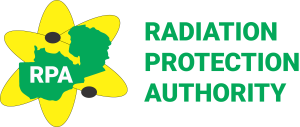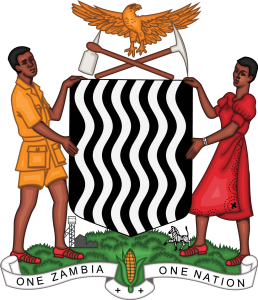Departments
Discover Our Departments: Radiation Safety Experts at Work.
Finance
Department

Finance
Department
Finance
The Finance department is responsible for all financial management and accounting functions of the Authority. Specifically the Finance department is responsible for :
Technical Services
Department

Technical Services
Department
Technical Services
The Department is headed by Director Technical Services (DTS) Mr Kabuku Mushaukwa.It was created to achieve the following functions of the Authority under section seven (7) and section 18 of the principle Act. In addition, the Department provides technical services for the Authority and guides licensees on how to meet the international and National Safety Standards which allows for protection of the people and the environment from the harmful effects of ionizing radiation.
Sections under protection service
In line with the strategic direction of the RPA, the Department of Protection service has been divided into the following sections;
1.Dosimetry and Calibration Service (D&CS):
Workers that are exposed to ionizing radiation are constantly being monitored by RPA under Part 3 section 18 of the principal Act. This is achieved by measuring, calculating and assessment of ionizing radiation dose absorbed by the human body using a devices called Thermoluminescent Dosimeters (TLD badges).
Occupationally exposed workers routinely wear TLDs on the upper body (torso) that specifically record or indicate the amount of dose received by that particular individual. TLDs possess crystals made of thermoluminescent material that responds to radiation by trapping energy in the locations where incident radiation strikes. After a period of two months, workers exposed to ionizing radiation then submit their respective TLDs for servicing to the Authority.
Therefore, this section ensures that workers that are exposed to ionizing radiation do not exceed their dose limitation by constantly monitoring the amount of radiation energy they are exposed to during the course of their work.All equipment used are calibrated to ensure accuracy and consistency.
To Join the Personnel Dosimetry Service, applicants may download the Application form at the following link
APPLICATION FORM→ APPLICATION-TO-JOIN-PERSONNEL-DOSIMETRY-SERVICE.pdf
PERSONNEL DOSIMETRY FORM → PERSONNEL-DOSIMETRY-FORM.docx
2. Waste Management and Emergency Preparedness (WMEP):
Emergency Preparedness and Response
Activities involving ionising radiation have markedly increased worldwide and mankind has benefited considerably from their use. However, accidents impacting adversely on public health can occur as a result of such activities.
This section is responsible for ensuring that adequate emergency measures to protect public health and safety in the event of a national radiological emergency and in place and implemented. It also ensures that users of ionising radiation in the country develop and maintain emergency response plans that meet comprehensive national and international emergency response requirements.
Waste Management
The use of radioactive sources and materials generate radioactive waste. Radioactive waste includes any material that is either intrinsically radioactive, or has been contaminated by radioactivity, and that is deemed to have no further use. Such waste needs to be managed in a way that keeps people and the environment safe over long periods of time.
The section is involved in providing technical services (e.g. search, securing and conditioning of radiation sources) in radioactive waste management so as to ensure that radioactive waste is managed in a way as to protect human health and the environment, protect future generations and avoid imposing undue burdens on future generations.
3. Food and Environmental Services (FEM): Naturally occurring radioactive materials such as potassium-40, polonium-210, phorium-232 and uranium-238 are routinely found in the environment including food and drinking water and result in a radiation dose when consumed. Small or considerable amounts of artificially occurring radioactive material such as caesium-137, caesium-134 and iodine-131 from nuclear weapons fallout, or from authorized discharges from licensed facilities following a nuclear or radiological emergency may also be present.
This section seeks to ensure that activity concentrations of radionuclides in the environment, food and drinking water are monitored in line with international standards established by the World Health Organisation and the International Atomic Energy Agency (IAEA) to safeguard public health.
4. Nuclear Security and Safeguards (NSS): Nuclear security involves the prevention and detection of, and response to, theft, sabotage, unauthorized access, illegal transfer or other malicious acts involving nuclear materials, other radioactive substances or their associated facilities.
The safeguards system of the International Atomic Energy Agency (IAEA) has a key responsibility in promoting peace and security in the world. The purpose of safeguards is to provide credible assurances to the international community that nuclear material and other specified items are not diverted from peaceful nuclear uses. The objective of safeguards is to deter the spread of nuclear weapons by early detection of misuse of nuclear material or technology, thereby providing credible assurances that States are honoring their legal obligations.
The section is responsible for the State System for Accounting for Nuclear and Other Radioactive Materials and also for Assessment of Physical Protection Systems at Radiation Facilities.
5. Transport of Safety and Security (TSS): The use of radioactive material in medicine, education, research, agriculture and industry is dependent on the safe and secure transport of radioactive materials from the manufacturer to the end user. Transportation of radioactive material by its nature gives rise to the risk of accidents with the potential for radiological exposures that could impact the safety of people, property and the environment. In addition, if adequate security measures are not in place during transport, radioactive materials can be accessed by people with malicious intent.
This Section monitors the import and export of radioactive materials including their transit through Zambia and also their transport within. This is currently done in accordance with the International Atomic Energy Agency (IAEA) transport regulations in order to ensure compliance with security requirements, minimize the chances of accidents and to protect the workers involved in transportation. However, national transport regulations for radioactive materials have been drafted.
6. Training and Consultancy Services (TCS): The global nuclear science and technology community is experiencing a period of dynamic change. The rapid expansion of nuclear programs and the increasing use of radioactive sources and ionizing radiation in general, highlights the need for continued training, awareness and sensitization on radiation protection to address safety and security concerns.
The Training and Consultancy Section provides training in Basic Radiation Protection to all users of ionizing radiation. It is requirement that licensees (users of ionizing radiation) are trained in radiation protection before embarking on a specific practice so as to ensure radiation safety and security are enhanced.
In addition, the department provides consultancy service for various practices to members of the public intending to venture in business relating to nuclear science and technology.
Corporate Service Unit
Department

Corporate Service Unit
Department
Corporate Service Unit
The Radiation Protection Authority views its people as human assets that are the “glue” holding all the other assets, such as financial and physical ones, together and guides their use to achieve institutional objectives.
The Human Resources and Administration department of the Authority is responsible for the following functions:
• Coordinating the formulation, developing and implementation of human resources and administration policies and procedures, advising both management and staff on labour laws, human resource management Policies and procedures in order to create a conducive working atmosphere in the institution in attaining the set objectives;
• Liaising with Departmental Heads and on the recruitment of staff to fill vacant positions whenever required, and on staff development matters to ensure recruitment of the right caliber of staff.
• Planning and conducting new employees’ orientation to foster positive attitude towards organisational goals;
• Administering the disciplinary code and grievance procedures to ensure high levels of discipline and uniform fair treatment of all staff;
• Ensuring that training needs of staff are identified and relevant training programmes are drawn-up and implemented in order to improve the performance of all members of staff;
• Coordinating the implementation of performance management processes of all staff on an annual basis as well as overseeing the day to day operations of the organisation;
• Providing effective coordination and supervision of subordinate staff to ensure compliance with rules and regulations and spur them to achieve the Authority’s objectives;
• Timely availability and maintenance of office equipment in order to enhance smooth operations of the Authority; and
• Procurement of goods and services required by the Authority in a manner that is compliant with existing legislation.
Internal Audit
Department

Internal Audit
Department
Internal Audit
The Internal Audit Department was established with specific terms of reference. The Internal Audit fulfils its terms of reference by systematic review and evaluation of risk management, control and governance which comprises the policies, procedures and operations.
SCOPE OF WORK
The scope of work is as follows:
- To establish and monitor the achievement of the Authority’s objectives.
- To identify, assess and manage the risks to achieving Authority’s objectives.
- To advise on, formulate and evaluate policy, within the responsibilities of the Executive director.
- To ensure the economical, effective and efficient use of resources.
- To ensure compliance with established policies including behavioral and ethical expectations, procedures, laws and regulations.
- To safeguard the Authority’s assets from losses of all kinds, including those arising from frauds, irregularity or corruption.
- To ensure the integrity and reliability of information, accounts and data, including internal and external reporting and accounting processes.
TYPES OF AUDIT CARRIED OUT
Internal Audit fulfils its terms of reference by carrying out the following:
- Pre-audit of all payments.
- Post audits.
- Special Investigations.
- Evaluation of internal control systems.
Nuclear and Radiation Safety
Department

Nuclear and Radiation Safety
Department
Nuclear and Radiation Safety
The Nuclear and Radiation Safety Department of the Authority is responsible for ensuring that all facilities licensed comply with the obligations of the law and all safety requirements are met.
To ensure effective and efficient management of the department is divided into the following sections:
- INSPECTIONS
- Inspections are conducted in order to advise managements of radiation facilities on compliance with the licensing and regulatory requirements and also to evaluate radiation safety in and around radiological facilities.
- Monitoring radioactivity in mining industries
- RPA is responsible for examining all premises in respect of which a license to use radiation is in force and all places of storage of radioactive waste materials.
- LICENCING
- Licensing and regulating all facilities using radioactive materials.
- Issue authorisation (permits, licence) to deal with any activity relating or radiation sources.
- Authority is mandated by the Ionising Radiation Protection Act to maintain an inventory of radiation sources, devices and occupationally radiation exposed workers.
- STANDARDS & ENFORCEMENTS
- Manages the development and implementation of radiation standards in order to ensure compliance to national and international standards.
- Manages effectively preparation and dissemination codes of practices in order to provide guidelines
- Enforcement actions are undertaken on all facilities that are non-compliant to safe standards.


